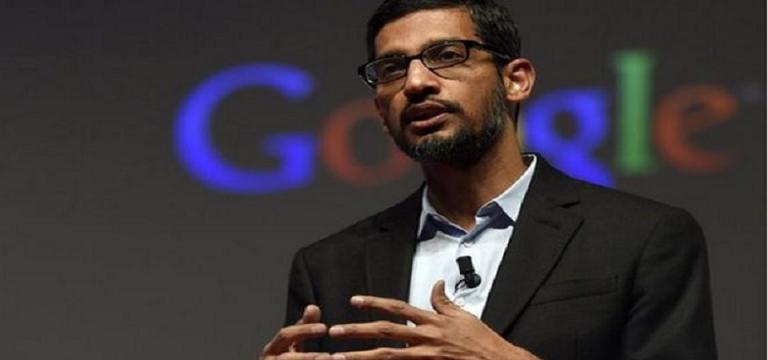
In a dynamic digital landscape rife with evolving cybersecurity threats, the CEO of Google Sundar Pichai has underscored the significant role that Artificial Intelligence (AI) can play in defense against cybersecurity threats.
Amid growing concerns about the potentially nefarious uses of AI, Pichai said that the tool could help governments and companies speed up the detection of and response to threats from hostile actors.
In his words,
Register for Tekedia Mini-MBA edition 19 (Feb 9 – May 2, 2026): big discounts for early bird.
Tekedia AI in Business Masterclass opens registrations.
Join Tekedia Capital Syndicate and co-invest in great global startups.
Register for Tekedia AI Lab: From Technical Design to Deployment (next edition begins Jan 24 2026).
“We are right to be worried about the impact on cybersecurity. But AI, I think actually, counterintuitively, strengthens our defense in cybersecurity”.
However, Pichai said that Al was also lowering the time needed for defenders to detect attacks and react against them. He said this would reduce what is known as the defenders’ dilemma, whereby cyber hackers have to be successful just once in a system whereas a defender has to be successful every time in order to protect it.
“AI disproportionately helps the people defending because you’re getting a tool which can impact it at scale versus the people who are trying to exploit. So, in some ways, we are winning the race”, he said.
With the revolution of AI, the use of technology to combat cybersecurity threats has become crucial as reports forecasted Cybercrime to cost the world $8 trillion in 2023.
Cybersecurity Ventures predicts that global cybercrime damage costs will grow by 15 percent over the next three years, reaching $10.5 trillion annually by 2025, up from $3 trillion in 2015.
Cybercrime is impacting businesses of all sizes and any business that wants to ensure its uptime, to ensure its reputation, and the safety of its employee and customer data, has a responsibility to invest in cybersecurity and put themselves ahead of disruption.
Cybercrime costs include damage and destruction of data, stolen money, lost productivity, theft of intellectual property, theft of personal and financial data, embezzlement, fraud, post-attack disruption to the normal course of business, forensic investigation, restoration and deletion of hacked data and systems, and reputational harm.
To counteract these increasing cyber threats, countries have been developing strong cybersecurity programs and enacting legislation aimed at tackling cybercrime and protecting themselves from digital dangers.
In addition to this, the private sector has been at the forefront of developing innovative cybersecurity solutions ranging from antivirus programs to dedicated fraud prevention software.
In line with this, tech giant Google has launched a new AI Cyber Defense Initiative to strengthen digital security. Through the AI tool, Google is continuing its investment in an AI-ready infrastructure, releasing new tools for defenders, and launching new research and AI security training.
The company’s CEO Pichar said the tools were already being put to use in the company’s products such as Chrome, and Gmail, as well as internal systems. These commitments are designed to help AI secure, empower, and advance the collective digital future.



